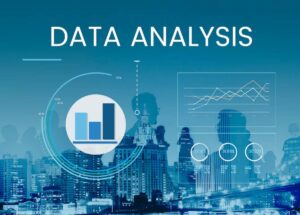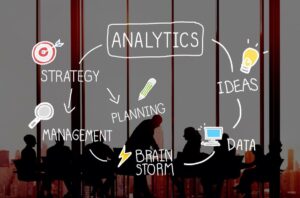The Education Blog

The Top Future-Proof Skills You Should Start Learning Now
The job market of today moves quickly. This need for lifelong learning has never been more crucial. Skills that guaranteed you a job now might have gone out of style. Future-proof skills are essential for those seeking career progression. In this blog, we discuss some of the most valuable skills you can learn today, how the skills you learn now prepare you for the workplace of tomorrow, and why these skills are necessary to ensure long-term success.
The notion of a job for life is disappearing. There is a need instead for people who are flexible, agile, and to learn. It’s a time of significant disruption in the modern workplace — from technological advances to economic shifts. Adapting to these changes is a strong advantage in the professional world.
Many people believe that once formal education is over in school, learning is done, too—and that perspective can kill your career. The best professionals today view education as continuity. They dedicate time to learning new skills and methods and remaining current in their industries.
Here’s a look at all the must-have future-proof skills to ensure your résumé makes a cut and you thrive amid uncertainty.
Why Future-Proof Skills Matter
Future-proof skills are valuable because they are versatile and durable. They remain essential despite tech changes, market disruptions, or job shifts. With AI, automation, and remote work rising, many traditional roles are being redefined or eliminated.
The World Economic Forum’s Future of Jobs Report states that by 2025, 50% of employees will need reskilling. It also predicts that 40% of core skills will change within five years. The report shows a growing need for human-centric skills like analytical thinking, creativity, and emotional intelligence—abilities that machines struggle to replicate.
Real-Life Applications
Consider Emily, a marketing pro who noticed digital transformation changing her field. Instead of waiting, she took online data analytics and consumer psychology courses. These new skills boosted her current job performance and helped her secure a role in strategic planning. Her story illustrates how embracing change can lead to unexpected career growth.
Future-proofing isn’t about mastering everything. Knowing which skills give you flexibility, confidence, and a competitive edge as the market evolves is essential.
Key Future-Proof Skills to Learn
1. Digital Literacy

Digital literacy means more than using a computer. It covers understanding online tools and software, data privacy, and digital ethics.
Why it matters: Every industry now relies on technology daily. Whether in healthcare, marketing, or law, navigating digital platforms impacts your job performance. What to focus on:
- Using collaborative tools like Slack or Zoom
- Familiarity with cloud services (e.g., Google Drive)
- Basics of cybersecurity and data privacy
- Awareness of AI tools and digital automation in your field. Action tip: Start small. Take free or low-cost courses on platforms like Coursera or LinkedIn Learning to build foundational digital skills, then add more technical training based on your role.
2. Data Analysis and Interpretation
Data is a crucial asset for organisations today. Gathering, interpreting, and acting on data can enhance decision-making and improve outcomes.
Why it matters: Professionals who can draw insights from data are in high demand from finance to HR. Data-savvy individuals help companies reduce risks and improve customer experiences. What to focus on:
- Tools like Excel, SQL, or Tableau
- Basic statistics and data visualisation methods
- Understanding data ethics and privacy
- Critical thinking for interpreting resultsAction tip: Analyze real-world data sets on platforms like Kaggle. Apply these insights to your current job or projects to build confidence.
3. Emotional Intelligence (EQ)

Emotional intelligence is uniquely human and highly valuable in today’s workplace.
Why it matters: EQ is key for communication, collaboration, and leadership. It helps you manage stress and build strong relationships. What to focus on:
- Self-awareness and self-regulation
- Empathy and active listening
- Conflict resolution and negotiation
- Leadership and teamwork skills tip: Seek feedback from peers or mentors. Reflect on emotional triggers and develop self-awareness through journaling or mindfulness.
4. Adaptability and Resilience
Change is the only constant in the modern workplace. Your ability to adapt can make or break your career success.
Why it matters: Employers want people who stay calm under pressure and pivot when needed. Resilient individuals bounce back from setbacks and maintain performance in stressful situations. What to focus on:
- Embracing change with a growth mindset
- Managing stress and staying focused
- Being flexible in new roles or challenges
- Continuous learning and experimentationAction tip: Use setbacks as growth opportunities. Reframe challenges as learning experiences. Build routines that support well-being, like exercise and sleep.
5. Creative Problem-Solving
As automation takes over repetitive tasks, human creativity stands out. The ability to think critically and find novel solutions is essential.
Why it matters: Creative problem-solvers add value by spotting opportunities and overcoming obstacles. This skill fosters innovation and is transferable across roles. What to focus on:
- Lateral thinking and brainstorming
- Root cause analysis and decision-making
- Innovation methods like Design Thinking
- Open-mindedness and experimentationAction tip: Engage in hobbies like drawing or writing that challenge your thinking. Collaborate with diverse people for fresh perspectives.
Additional Expert Tips & Common Mistakes to Avoid
Best Practices for Skill Development
- Set specific goals: Instead of “learn coding,” aim to “complete a beginner Python course in 30 days.”
- Create a learning plan: Dedicate weekly time for skill-building. Even 20–30 minutes daily can lead to progress.
- Use multiple formats: Combine videos, articles, podcasts, and hands-on projects to reinforce learning.
- Apply skills early: Use new knowledge in side projects or volunteering to cement your learning and boost confidence.
Common Mistakes
- Focusing only on hard skills: Technical skills are essential, but soft skills like adaptability and communication are just as crucial.
- Not reflecting on progress: Regularly review what you’ve learned and how it helps your growth.
- Waiting for permission: Don’t wait for your employer to provide training. Take charge of your development.
Advanced Insights / Expert Recommendations
Pursue Advanced Credentials
Certifications can significantly impact your career. They validate your expertise and show initiative. Popular credentials include:
- Google Data Analytics Certificate
- Certified ScrumMaster
- Project Management Professional (PMP)
- AWS Certified Cloud Practitioner
Build a Learning Community

Connect with like-minded learners by joining online forums, attending webinars, and following industry leaders. Being part of a community keeps you accountable and exposes you to new ideas.
Stay Ahead of Trends
Regularly track changes in your field. Subscribe to newsletters, read case studies, and explore reports from sources like McKinsey or LinkedIn’s workforce trends.
Investing in Your Future
It is essential to gain future-proof skills. New technologies have ensured that lifelong learners will thrive in an evolving professional landscape in less than two years as others fall behind.
You will survive and thrive in the future if you embrace these skills, such as digital literacy, data analysis, emotional intelligence, adaptability, and creative problem-solving. They are skills not specific to one job. They are assets that will carry you through shifts in your career or industry and waves of technological progress.
What skill will you begin learning today to invest in your future? Let this be the first step toward continual growth and resilience.
Share your thoughts and goals in the comments—what future-proof skill are you focusing on this year? Let’s inspire each other as we build stronger careers for the future.









